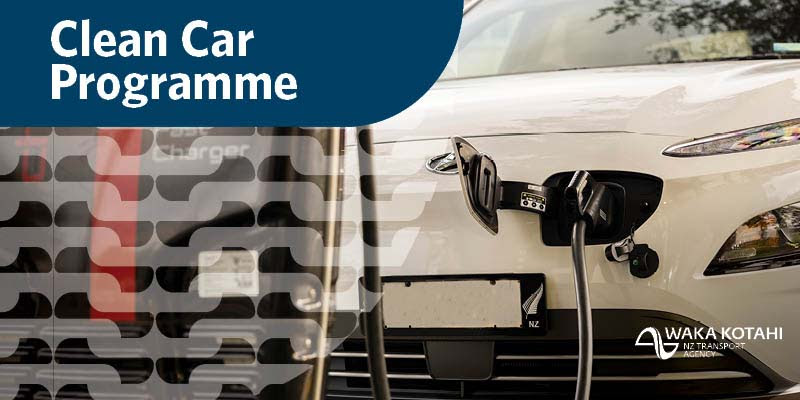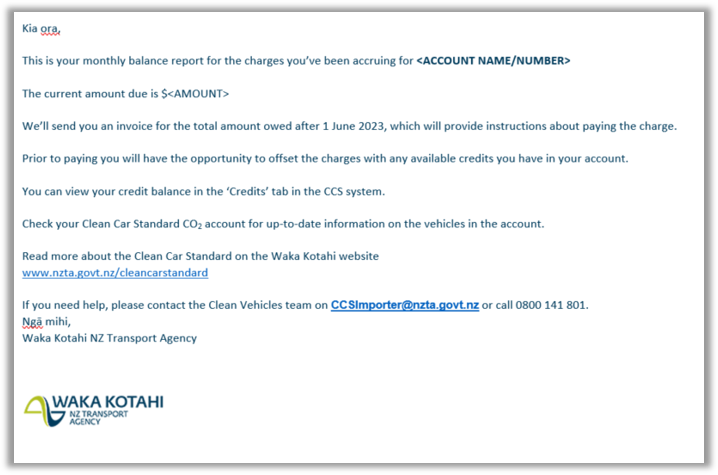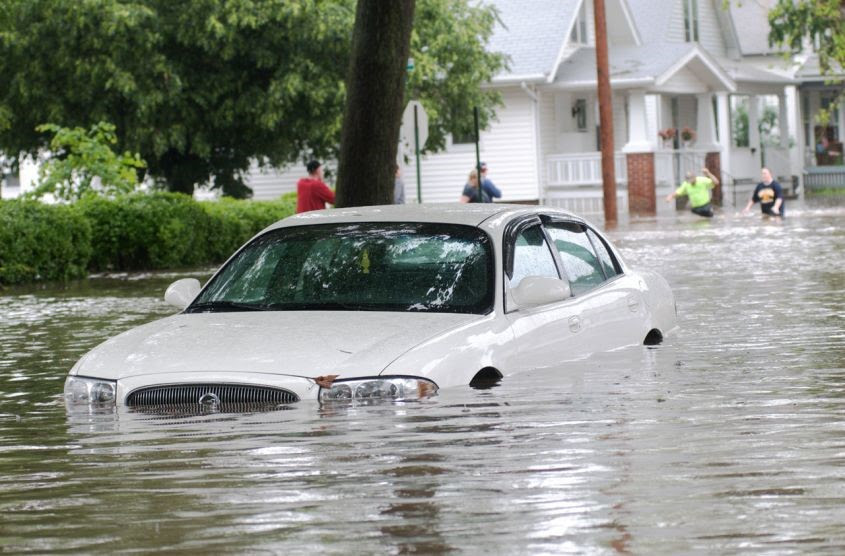Greetings,
Re: NZTA Clean Car Programme Announcement
Please see latest news on the CCS Clean Car Programme:

Kia ora
Welcome to the latest update from the Clean Car Standard programme. We’d like to extend our best wishes and thoughts to those of you who have been affected by damage caused by the severe weather events and flooding in the North Island.
The recent events have caused a significant increase in water-damaged vehicles and we have received questions about insurance and the safety of flood-damaged vehicles. We are pleased to be able to provide information below which we hope is helpful.
We also want to let importers on PAYG know that they’ll receive an automated email at the start of each month through to June, about their current charge balance. We’re sending these out as a courtesy to help you stay across your CCS financial obligations. Your balance will change over time, and you are not required to make any payment until June.
Remember that you can get in touch with the CCS team at any time by emailing CCSimporter@nzta.govt.nz or call us on 0800 141 801.
The Clean Car Standard team
Payments processes – update
We’re currently developing the Clean Car Standard (CCS) payment processes and will continue to provide updates as details are worked through.
The key things to remember are that CCS payments are not due until after 1 June 2023, and we will be in touch with you well in advance so that you understand how to pay any balance owing.
‘Balance owing’ email
From 1 March, CO2 account holders on the PAYG scheme who have charges will receive automated monthly emails through until June to let them know their current charge balance.
These emails are designed to help importers keep across what’s happening in their CO2 accounts, but payments are not due until after 1 June.
You can also check your charge and credit balances in your CO2 account at any time.

Flood damaged vehicles and insurance
Many of you will have been affected by the devasting flooding of recent weeks or know someone who has been.
One part of the recovery from Cyclone Gabrielle is the issue of insurance and loss adjustments for flood damaged vehicles. The CCS is a new aspect of the vehicle business and so may not be front of mind as work is undertaken to restore people’s lives and businesses, but it is relevant.
If an imported vehicle has not completed entry certification and not been accepted by the CCS account owner, its replacement cost for insurance purposes remains unaffected by CCS.
However, a vehicle that has been accepted by the account owner is subject to the rules of the CCS and so if there is a charge on the vehicle it remains an obligation even if the vehicle is now written off.
Importers and dealers holding damaged stock subject to insurance claims should be discussing the value of the claims with their insurers if they’re looking for full cost recovery.

Increase in number of water-damaged vehicles
Water damage can affect a vehicle’s safety system components. Simply drying out a vehicle is not enough from a safety perspective, given the likelihood of damage to the vehicle’s electronic and mechanical safety systems.
The flow-on effect for vehicles will be felt for months:
- Supply and demand – many vehicles are being written-off by insurers. People will want to buy replacement vehicles with fewer available, new and used.
- Damaged vehicles being sold – people may attempt to fix their vehicle themselves so they can continue using it or on-sell it, without being aware of potential unseen problems.
A new Waka Kotahi webpage provides people with information on water damaged vehicles. Whether you’re a vehicle owner, importer or part of the regulatory process, it’s important to be aware of some key points:
- We strongly encourage people not to attempt to fix vehicles themselves, or to drive or on-sell a water-damaged vehicle.
- If you have vehicle insurance, contact your insurer immediately to arrange a vehicle assessment. The insurer will work with you to repair the vehicle or write it off and settle your claim.
- If your vehicle isn’t insured, we recommend you have a suitably qualified automotive technician inspect it thoroughly.
- If you’re looking to buy a vehicle, we recommend you go to a licensed or registered vehicle dealer, or an organisation covered by the Consumer Guarantees Act.
Clean Car Standard calculator
A reminder that there is a simple calculator available to support you estimate CCS CO2 values and dollars of the vehicles you’re bringing in.
The calculator is on Fuelsaver: https://importer.fuelsaver.
The calculator is designed for a simple single vehicle enquiry and uses the values supplied by importers. The key inputs are the 3pWLTP CO2 and the Tare weight of the vehicle.
The Clean Car Discount values have also been added to the calculator so that all the information is in one place.
For the calculation of CCS CO2 values for bulk vehicles, you can still use the Ministry of Transport CO2 emissions calculator which can also be found on the Waka Kotahi website.
